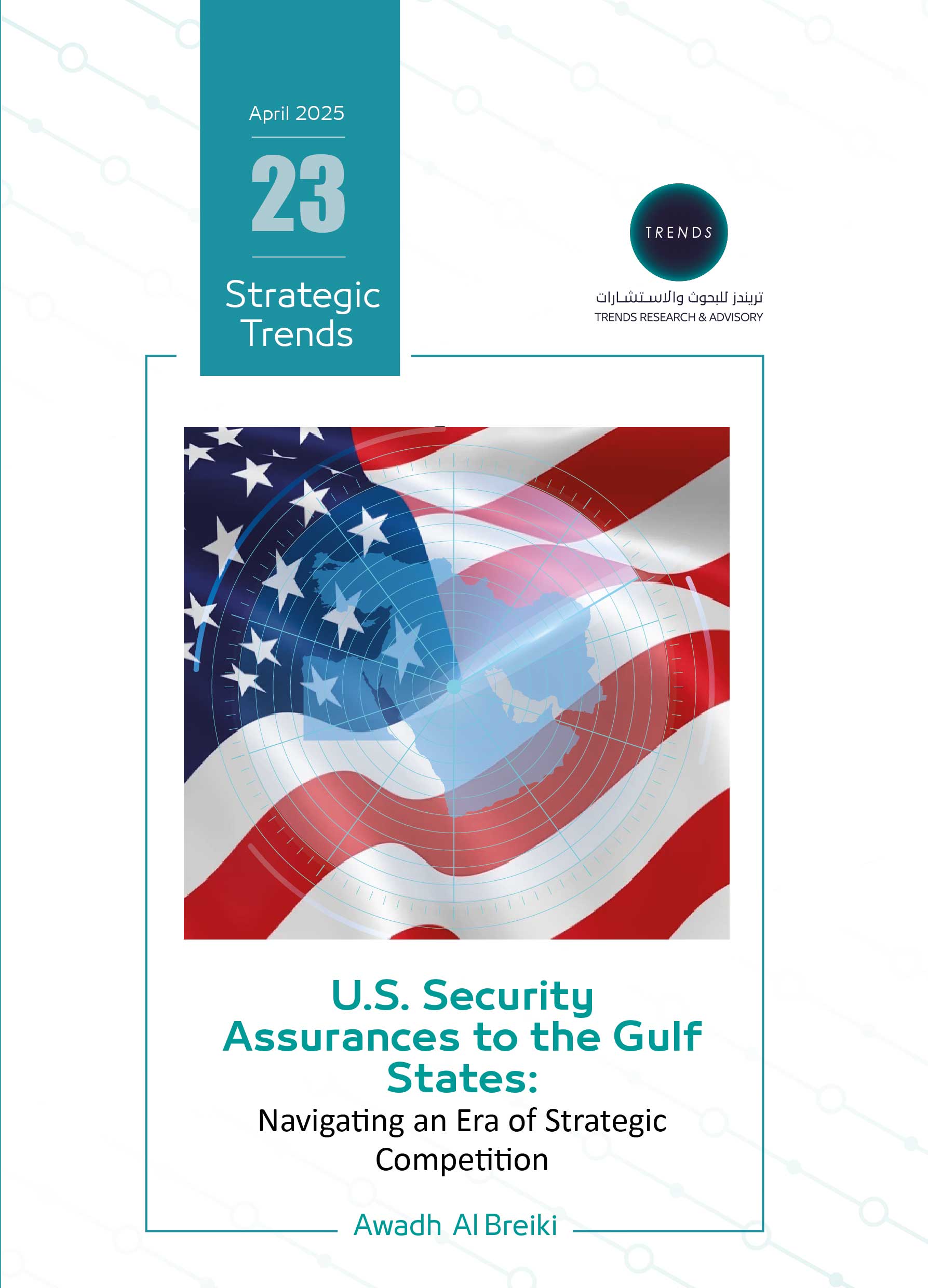The stability of the Gulf region has long been a cornerstone of U.S. foreign policy, with Washington providing security assurances through military presence, arms sales, and strategic partnerships. These assurances have helped maintain regional security, protect vital energy flows, and counter security threats, including Iranian-backed proxies and terrorist organizations. However, the strategic landscape is evolving. The United States has become less dependent on Gulf energy, while its global priorities have shifted toward great power competition, particularly in the Indo-Pacific. These changes, along with domestic debates in the U.S. over military spending and overseas commitments have raised fundamental questions about the future of Washington’s security role in the Gulf. At the same time, regional actors are recalibrating their strategies, seeking alternative security arrangements, and deepening ties with other global powers.
This paper examines five key scenarios that could drive significant changes in U.S. security assurances to the Gulf. Among them, the most consequential would be Gulf states aligning with a peer competitor such as China or Russia. A majority of the experts interviewed identified this scenario as a potential turning point in U.S. security policy, as growing Gulf-China defense cooperation, technology partnerships, or arms purchases could prompt Washington to curtail military support or reassess its long-term commitments. The second major scenario is a U.S. war with a peer competitor, such as China or Russia, which could lead to a reduction in Washington’s ability to uphold security guarantees in the Gulf. While some experts argued that a U.S.-China conflict would divert resources away from the region, others suggested that it might lead to an increased American military presence in the Gulf as part of a broader effort to secure global supply chains and energy markets.
Other scenarios explored in this paper include the development of an autonomous Gulf military alliance, shifts in U.S. domestic political attitudes toward foreign military commitments, and the influence of anti-American sentiment in the Gulf. While an independent Gulf security framework could lead to reduced reliance on the U.S., experts were divided on whether Washington would view such a development as a threat or an opportunity. Meanwhile, growing isolationist sentiment in American politics could pressure Washington to scale back its military footprint abroad, particularly if bipartisan support for overseas engagements continues to decline. However, experts largely agreed that anti-American public opinion in the Gulf is unlikely to have a direct impact on U.S. policy, as Gulf states remain largely elite-driven in their foreign policy decision-making.
The implications of these scenarios highlight the need for Gulf states—particularly the UAE—to adopt a more proactive and diversified approach to security and foreign policy. A key priority should be maintaining strategic flexibility, ensuring that partnerships with the U.S., China, and other global players remain mutually beneficial without provoking geopolitical friction. Economic diversification is also critical, as overreliance on hydrocarbon exports leaves Gulf economies vulnerable to potential disruptions, especially in the event of a U.S.-China conflict or major supply chain shocks. Expanding energy partnerships beyond traditional markets and strengthening trade ties with middle powers such as India, Brazil, and South Africa can provide additional resilience. Additionally, reinforcing long-term institutional relationships with U.S. government entities—such as the Department of Defense and the State Department—will be essential to preserving military and intelligence cooperation, regardless of shifting political dynamics in Washington.
More broadly, this study underscores the repetitive and cyclical nature of U.S. security policymaking. Historically, U.S. engagement in the Gulf has fluctuated in response to domestic and global strategic priorities, and future security assurances will likely follow a similar pattern. Gulf states must therefore remain adaptable, ensuring that their security frameworks are flexible enough to withstand shifts in U.S. policy. Furthermore, as great power competition intensifies, Gulf leaders must prioritize pragmatic diplomacy, conflict prevention, and alliance-building to avoid entanglement in geopolitical rivalries. By adopting a balanced approach—one that leverages regional partnerships, strengthens economic independence, and maintains constructive ties with both Washington and Beijing—the Gulf states can navigate the complexities of an evolving security landscape while safeguarding their long-term stability and strategic interests.




